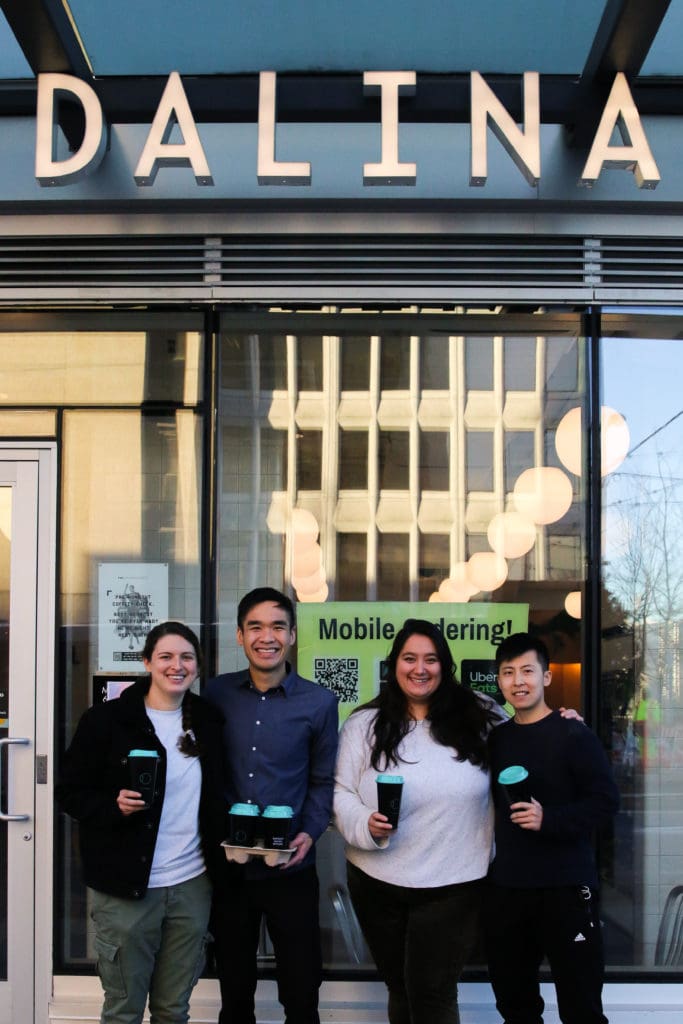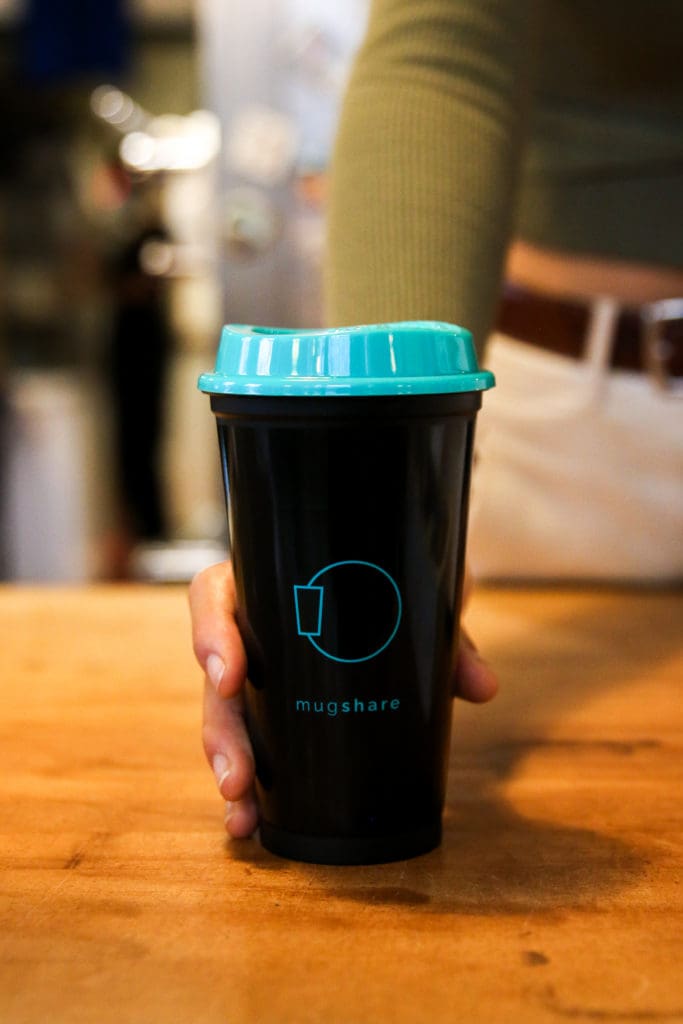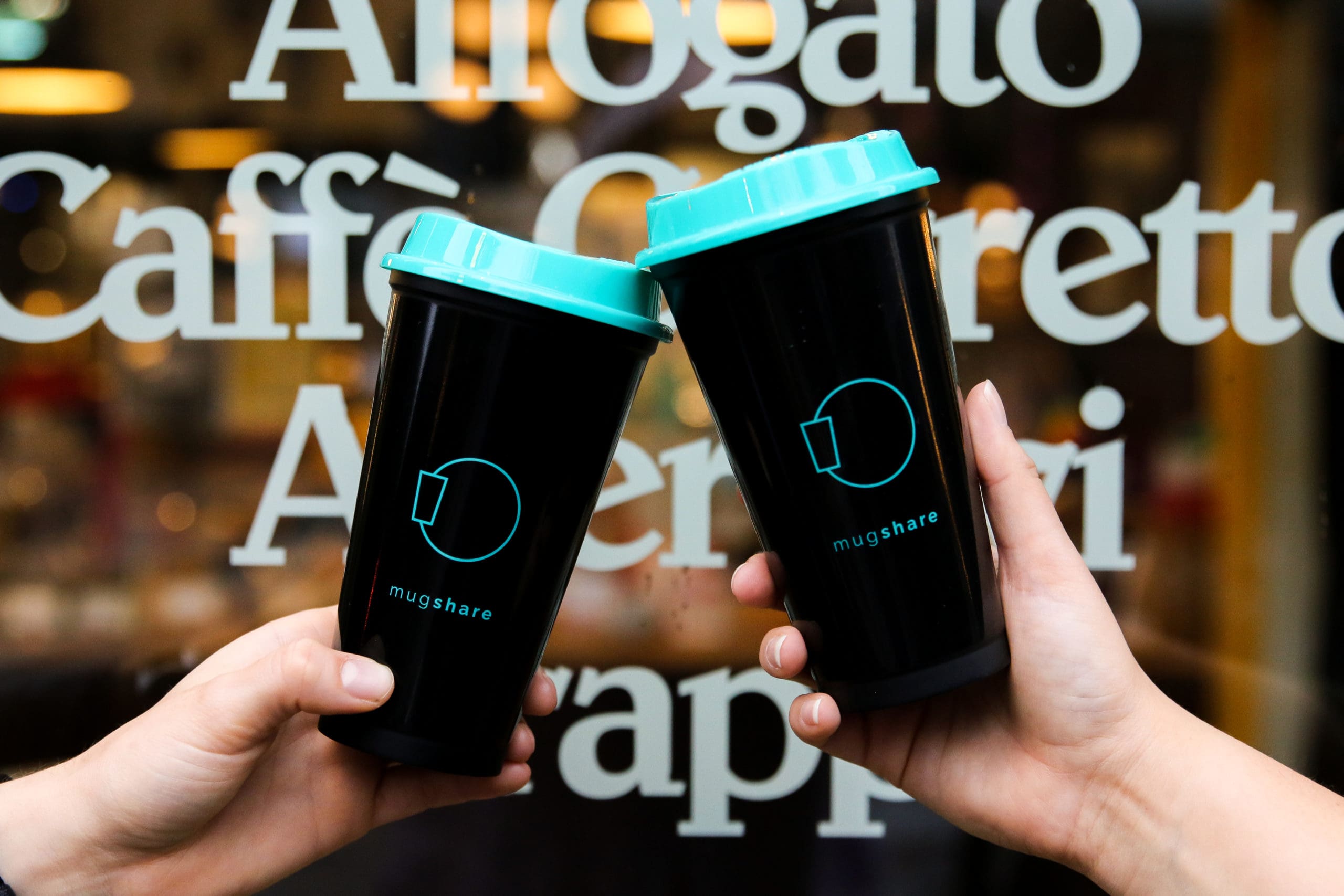Did you know there’s an alternative to bringing your own cup to the coffee shop? In Vancouver, mugshare was created by a group of UBC students in 2016 to shift the norm on single-use waste, without putting the burden of responsibility on individuals. We chatted with mugshare’s Melanie Chanona and Isolina Zazzara-Yu to find out more. —Noa Nichol

When and why did you launch mugshare? What niche or problem were/are you trying to fill or solve?
mugshare was created by a group of students at UBC in 2016 in an effort to shift the norm on single-use waste. Having seen so many BYOM (bring-your-own-mug) campaigns come and go but little long-term change, we were determined to change the system through collective action. We wanted to solve the problem of what to do when we find ourselves at the counter, ready to order a drink, and realize that we left our mug at home. We knew that people needed options other than single-use cups that would be discarded as soon as they finished their drink. Over the past few years we’ve trialled, refined, collaborated, and iterated in countless ways to finally end up with the super simple deposit-return solution we have today. Our goal is to make it easy for anyone to access low-impact options and be part of the circular movement.
Tell us about the mug itself (the trials and tribulations of finding just the right one), and how the service/program works.
Since the beginning, mugshare has completed extensive research, sample testing, and piloting to find a mug that balanced the many requirements of a commercial scale reuse program. We needed a mug that was durable enough to stand up to the wear and tear of regular use, lightweight, stackable, reasonably low cost and safe. In 2021, we finally found a 100 per cent polypropylene (the #5 plastic type) mug that was able to meet all these needs. While we recognize that many folks are concerned about the continued use of plastic, there is robust evidence from life-cycle assessment studies that “single-use” (irrespective of material) is more problematic than “plastic”. No material is perfect—but we are confident that shifting the norm on single-use is a critical first step! The program works like this:
- Order a drink at any participating location and ask for a mugshare mug in exchange for a $5 fully refundable deposit.
- Enjoy your drink there, or take-it to go.
- When you’ve finished your drink and want to return the mug, drop it off any mugshare location and get your $5 back (or: simply swap out your used one for a clean one if you want another drink and keep the cycle going!).
- Our system is purposely simple and designed with end users in mind. There are no late fees, apps to download, or sign-ups required; we want mugshare to be as low barrier as possible to maximize the number of single-use cups we divert from the landfill.

In a world newly obsessed with germs, how do you ensure everyone/thing stays clean and safe?
Reusable mugs are kept safe by the same sanitation policies we’ve been using for dine-in dishware for a long time—using mugshare is no different than using a sanitized glass or fork at a restaurant! Our mugs are washed and sanitized after every use by food-safety trained employees, and the BC Centre for Disease Control clearly supports the use of reusable containers provided these standard practices are in place.
Who are you currently partnered with, and how can new coffee shops sign on? (And do you only work with cafés?)
Our network of partners is currently 18 locations strong and growing! The most common use for mugshare is at coffee shops, like JJ Bean or Dalina, but we also love to work with donut shops like Cartems, bagel shops like Rosemary Rocksalt, restaurants like Chickpea, and even ski resort cafes (check out Globe at Big White!). Basically, anywhere a single-use cup shows up, mugshare can help. One of our long-time dreams has actually been to partner with the Canucks at Rogers Arena!
The City of Vancouver recently imposed a 25-cent fee on single-use cups, but is only “encouraging” businesses to use the money for sustainable works. What do you think the likelihood is of this happening? Do you think this fee is a good idea?
We appreciate seeing the city move toward reaching their sustainability goals and, as a team, mugshare participated in their public consultations when they were first designing the bylaw. One key learning from this was the evidence they provided that showed that fees are dramatically more effective in changing consumer behaviour than discounts. Of course we hope that businesses will use any extra revenue for sustainability initiatives, but ultimately we are more interested in how consumers will try to avoid this fee and look for an alternative to single-use cups. With mugshare, we make it easy for folks by always having a reusable option available (importantly, not one that you have to remember to bring or wash yourself!). Since the city sent out informational packages about this bylaw, we have been seeing more and more businesses reaching out to us who want to explore and learn about solutions like mugshare. We are eager to see how the new policy will impact the 2.6 million single use cups that are sent to Vancouver landfills weekly, which is one of mugshare’s driving motivations!
Final, personal question: what is in your Mugshare cup?!
Mel: Almond milk latte.
Isolina: I love me a sickeningly-sweet decaf latte with oat milk.

Be the first to comment